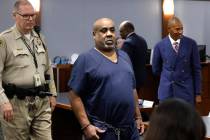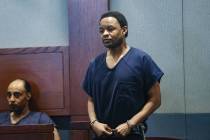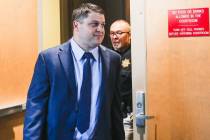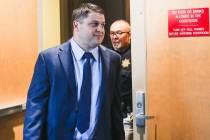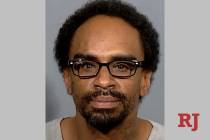Lenders’ conduct in foreclosure program angers justices
Mortgage lenders who try to foreclose on distressed Nevada homeowners received a not-so-subtle message Tuesday when the Nevada Supreme Court heard a trio of appeals related to its Foreclosure Mediation Program: Follow the rules or suffer the consequences.
Just what those consequences might be remains to be seen, but a majority of justices expressed growing frustration and even anger with lenders who fail to participate in good faith.
The complaints against lenders’ participation in the foreclosure program are legion and focus on three issues: They don’t bring loan documents required by state law; they don’t send someone authorized to modify a loan to mediation sessions; and they don’t offer workable solutions designed to keep the borrower in the home.
When attorney Donna Osborn told justices that program mediators were biased in favor of borrowers, Chief Justice Michael Douglas bristled.
Mediators are using ” extreme enforcement of the rules,” said Osborn, who represents One West Bank and Regional Trustee Service. “They say, ‘Let’s see what we can find wrong’ ” with the lender.
“That’s not what I’m hearing at our roundtable discussions,” Douglas said with uncharacteristic emotion. “If you say that (to program employees), they will hand you your head. Now stick to the arguments presented this day.”
Osborn’s clients foreclosed on Karl and Frances Holt in 2008. The Holts opted to participate in mediation, but neither Regional Trustees nor One West Bank sent a representative to two scheduled mediations.
Clark County District Judge Donald Mosley denied the certification letter needed to proceed with the foreclosure but gave the lenders permission to restart the process.
The high court must decide if lenders can, as was allowed in the Holt case, simply file another foreclosure notice after being found to have acted in bad faith.
In Daane v. Clark County District Court, lender CitiMortgage didn’t bring the required documents or provide someone who could modify a loan.
Found to have acted in bad faith by the mediator, CitiMortgage was later required to pay William Daane’s attorney fees. But like other lenders, it simply filed a second notice of foreclosure after its first attempt failed.
Jacob Hafter, Daane’s attorney, urged justices to close the loophole.
“There has to be consequences,” he said. “Lenders don’t take this serious.”
In the third case, out of Reno, Washoe County Judge Patrick Flanagan, Mosley’s counterpart in Northern Nevada, denied homeowners Emiliano and Yvette Pasillas judicial review.
As in the other cases, lender HSBC Bank failed to bring the required loan documents, and — in a growing trend — failed to even prove that the loan was theirs or that they had the right to foreclose. The assignment of the loan was blank.
When the Pasillas sought a bad faith ruling, Flanagan declined to impose sanctions despite evidence the lender failed in every aspect to comply.
Justices Mark Gibbons and Nancy Saitta said they were “incredulous” to learn the lender couldn’t prove it held the note. “I’m having a hard time finding substantial compliance,” Saitta said.
“Homeowners have a right to know the lender has a right to foreclose,” Gibbons said.
Justice Ron Parraguirre suggested the high court might “encourage mediators to pull the plug” on noncompliant lenders.
“It seems like such a waste of time for nothing,” he said.
The high court continues to fine-tune the program, which lawmakers created in 2009. When they issue their formal opinion on Tuesday’s appeals, justices will not only rule on the individual cases, but will also redefine the meaning of good and bad faith as it pertains to the program.
They also must determine if more than two judges should conduct judicial reviews and must button down meaningful sanctions when lenders act in bad faith.
State law allows judges to modify loans from the bench, but Mosley and Flanagan agree that such a sanction constitutes an illegal taking.
Hafter agrees, but he said lenders could still be held to account through monetary sanctions.
“Judges don’t have to modify the loan,” he said. “They can impose a $50,000 sanction for bad faith and give that to the homeowner.”
Hafter, who represents several homeowners, said he was happy with the stance taken by justices.
“It looks like homeowners have advocates on the high court,” he said. “Hopefully, the Supreme Court will show lenders this isn’t a game. Without accountability they’re going to keep going after the emotional and financial well-being of homeowners.”
Contact Doug McMurdo at dmcmurdo@reviewjournal.
com or 702-224-5512.












